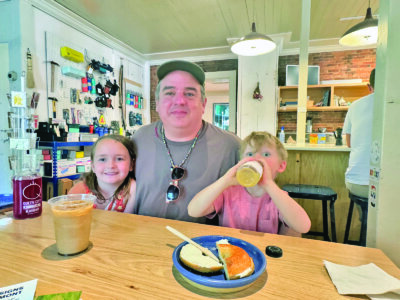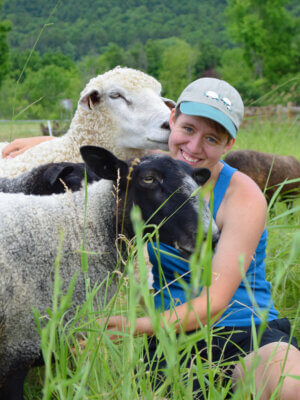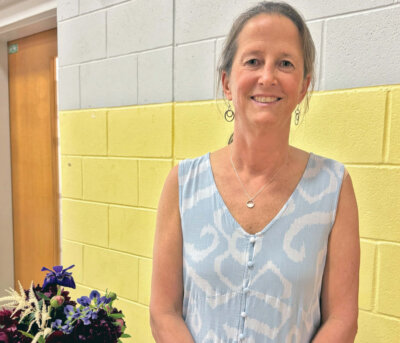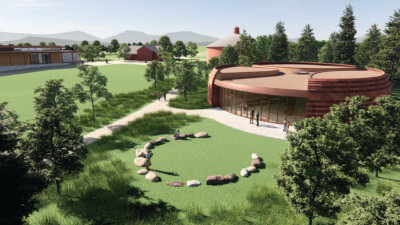A Q&A with the new ZA
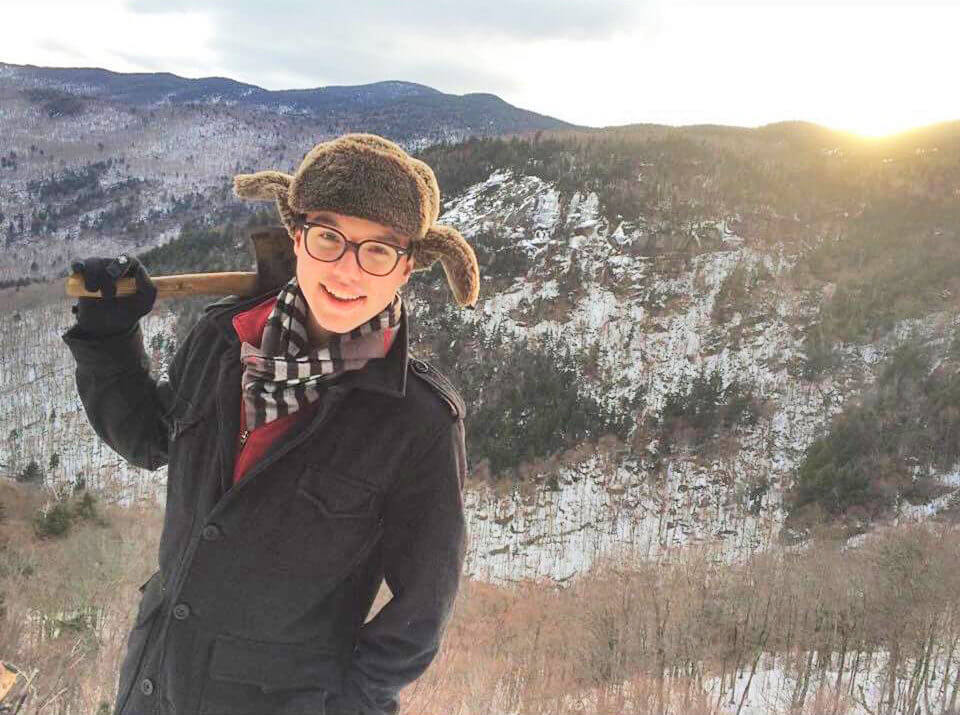
Daniel Morgan, the new town Zoning Administrator, comes to Charlotte with a fresh perspective, a cheeky attitude toward his local newspaper and a passion for philosophy and Vermont winters.
What do you think will be the most fun or interesting aspect of your work here in Charlotte? What appeals to you about working in a small community like this?
My favorite part of the position, and what gravitated me toward it initially, has been and always will be the incredibly talented people I get to work alongside here in Town Hall, and the equally exemplary citizenry of this fine Vermont township.
Answering the questions of students at Columbia University, Robert F. Kennedy said: “Frank as it is—and maybe it’s difficult to believe—I’d like to just be a good United States Senator. I’d like to serve.” Alan Seeger once wrote that “success in life means doing that thing then which nothing else conceivable seems more noble or satisfactory or remunerative. And then being ready to see it through to the end.”
Frank as it is—I’d like to serve, and there could be no greater cause to see through to the end than that of the State of Vermont and the Town of Charlotte.
What do you anticipate will be the most challenging aspect of the job?
Dealing with the press, definitely—just kidding! I think the greatest challenges this position faces are in the same way its greatest opportunities. In John F. Kennedy’s book A Strategy for Peace, he wrote that “In my view the American purpose remains what it has been since the nation’s founding: to demonstrate that the organization of man and societies on the basis of human freedom is not an absurdity, but an enriching, ennobling, practical achievement. Our purpose is to demonstrate at home that this great democracy can solve its problems by the method of consent—by a system of freedom under law. With respect to the world outside, our purpose is not only to defend the integrity of this democratic society but also to help advance the cause of human freedom and world law—the universal cause of a just and lasting peace.” That is the great challenge we face here in Vermont, as well as across the nation—and more than ever, across the globe. In my new position, I hope to continue and protect that great legacy of American purpose and existence and to serve the citizens of Charlotte who all seek to do the same.
You don’t have to give me the whole lowdown of your resume, but I’m interested in recent job experience, where you’re from, etc.
I was born and raised in Burlington, Vermont, attended Burlington High School (Go Seahorses!) and graduated with a B.A. from the University of Vermont in politics and history. Throughout my academic career, I also studied at American University in Washington, D.C., and Newcastle University in Newcastle-Upon-Tyne, England, United Kingdom. I lived and studied in England for around year and a half. Recently I’m back from the U.S. Army in Ft. Benning after being medically discharged.
Any personal details–pets, hobbies, family life–you care to share?
I can’t claim what I do is skiing as much as it is falling down the mountain, with as much grace as possible considering the sticks attached to my feet, but I have a true passion for Vermont winters. I’m a hockey player and a dog lover, and I’m perhaps most excited to meet all of Charlotte’s canine companions.
What have you heard, either from your new colleagues or from locals, will be the issue that takes up the most time or thought?
In the 21st century I think it’s fair to say that there is hardly a piece of life that is unaffected by government at some level. As a Zoning Administrator, I’m dealing with what is, at its very core, people’s quality of life—where they spend a great deal of their time. I think of what Whitman wrote:
“Oh me! Oh life! of the questions of these recurring,
Of the endless trains of the faithless, of cities fill’d with the foolish,
Of myself forever reproaching myself, (for who more foolish than I, and who more faithless?)
Of eyes that vainly crave the light, of the objects mean, of the struggle ever renew’d,
Of the poor results of all, of the plodding and sordid crowds I see around me,
Of the empty and useless years of the rest, with the rest me intertwined,
The question, O me! so sad, recurring—What good amid these, O me, O life?
Answer.
That you are here—that life exists and identity,
That the powerful play goes on, and you may contribute a verse.”
What do you think is a good path forward for Charlotte to maintain its rural character while at the same time supporting local businesses and encouraging people to move to town in order to maintain a robust population?
President Kennedy said we have the capacity to make this the best generation in the history of mankind or to make it the last. I think that we can make it the best generation, but I think it’s going to rest with those who are concerned, those who are educated and those who are trainedbut most of all, those who take interest in public affairs; whether they are going to participate, or whether they’re going to say, “This is some of the problem or responsibility of somebody else.” That will be the deciding factor. All of us in Town Hall, and all of us in Charlotte, step up to that challenge every day.
When we look and analyze where our system of government originated, we think of the Greeks and what their idea really was of participation; of what Pericles said in his funeral oration: that “we differ from other states and that we regard the individual who holds himself aloof from public affairs as being useless yet we yield to no one in our independence of spirit and complete self-reliance.”
I think that’s what gets to guide us. I think of the Greeks, and the word “idiot” coming from that individual who did not participate, who wasn’t actively involved. One of my favorite quotes is from Dante, that “the hottest places in hell are reserved for those who, in time of moral crisis, preserve their neutrality.” Whether it’s in Zoning or Planning, or Wastewater, or Public Health, these are issues, perhaps hyper focused, sure, but part of broader ideals that affect all of us.
Sophocles once said, in speaking of an uninvolved community, “What joy is there and in that day that follows day, some swift some, slow with depth the only goal.” Really that’s what many of our fellow citizens—whether they’re in Charlotte or whether they’re in Burlington or whether they live rural Vermont experience daily—this invasive idea that there’s no future. The beauty, then, of working at the very ground level of democracy, is being able to take part in building this future, making it brighter. These, I think, are our responsibilities—these are every citizen’s responsibilities, just as they are mine. If not now, when? If not us, who?
Related Stories
Popular Stories
If you enjoy The Charlotte News, please consider making a donation. Your gift will help us produce more stories like this. The majority of our budget comes from charitable contributions. Your gift helps sustain The Charlotte News, keeping it a free service for everyone in town. Thank you.
Andrew Zehner, Board Chair




